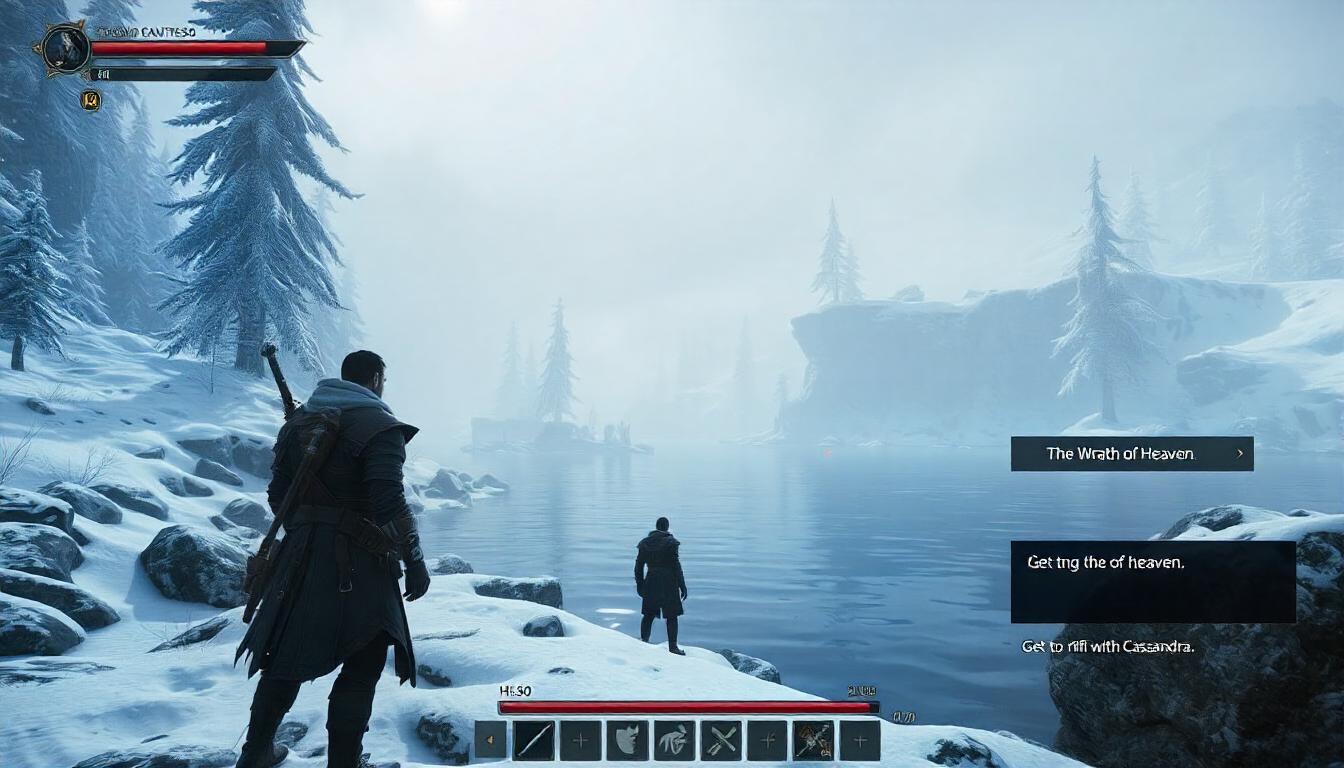Dragon Age: Inquisition, developed by BioWare, is a critically acclaimed action role-playing game that immerses players in a sprawling fantasy world. Set in the conflict-ridden land of Thedas, players assume the role of the Inquisitor, tasked with uniting warring factions, closing a mysterious Breach in the sky, and combating the looming threat of the Elder One. The game features a rich narrative, complex characters, tactical combat, and breathtaking open-world exploration.
Full Detailed Description (Approx. 1000 Words)
1. Introduction to Dragon Age: Inquisition
Dragon Age: Inquisition, released in 2014, is the third installment in the Dragon Age series by BioWare and published by Electronic Arts. Building on the successes and lessons of its predecessors, it combines elements of tactical RPG gameplay with expansive open-world design. Winning multiple Game of the Year awards, it sets a benchmark for storytelling, character development, and immersive world-building.
2. The World of Thedas
The game is set in Thedas, a continent steeped in history and lore, where conflicts between mages, templars, and other factions threaten the balance of power. A cataclysmic event, the Breach, tears the sky apart, unleashing demons and chaos. As the Inquisitor, players are thrust into the role of a reluctant hero, marked with a mysterious ability to close rifts and restore order.
The world features distinct regions such as the lush Hinterlands, arid Western Approach, and icy Emprise du Lion. Each area boasts unique environmental challenges, quests, and secrets, making exploration deeply rewarding.
3. Gameplay Mechanics
Character Creation and Classes:
Players can customize their Inquisitor’s race (human, elf, dwarf, or Qunari) and class (warrior, rogue, or mage). Each choice impacts gameplay, dialogue options, and how the world reacts to the character.
Combat System:
The game offers two styles of combat: real-time action-oriented gameplay or tactical mode, where players can pause the action to issue commands to their party. This dual approach ensures both strategic depth and fast-paced action, catering to diverse playstyles.
Companions and Party Dynamics:
Companions are central to the Dragon Age experience. Characters like Cassandra Pentaghast, Iron Bull, and Solas have their own backstories, loyalties, and motivations. Building relationships with them affects the narrative, unlocking personal quests and potential romances.
4. Narrative and Decision-Making
The Storyline:
The narrative is driven by the Inquisitor’s efforts to unite a fractured world and face the Elder One, a mysterious and powerful antagonist. Themes of politics, faith, and personal responsibility are interwoven, making choices impactful and morally complex.
Player Agency:
Choices have far-reaching consequences. Decisions made in major quests can alter alliances, determine who lives or dies, and even shape the fate of entire regions. These branching paths ensure that no two playthroughs feel identical.
5. The War Table and Operations
The War Table serves as the Inquisition’s command center, allowing players to send agents on operations to gather resources, uncover secrets, or forge alliances. These missions, which unfold in real time, expand the story and deepen the player’s connection to the world.
6. Visuals and Audio Design
Graphics:
Dragon Age: Inquisition is powered by the Frostbite engine, delivering stunning landscapes, detailed character models, and dynamic lighting. The attention to detail in environments—from ruins to bustling towns—enhances immersion.
Soundtrack:
The game’s orchestral score, composed by Trevor Morris, captures the grandeur and emotional depth of the story. Voice acting, led by a talented cast, breathes life into the characters, making every conversation memorable.
7. Multiplayer Mode
In addition to the single-player campaign, the game features a cooperative multiplayer mode. Players team up to complete dungeon-like missions, offering a fun, action-packed diversion from the main story.
8. Critical Reception and Legacy
Dragon Age: Inquisition was widely praised for its storytelling, character development, and expansive world. It won numerous awards, including Game of the Year at The Game Awards 2014. The game’s success solidified BioWare’s reputation as a master of RPGs and laid the groundwork for future Dragon Age titles.
9. Themes and Symbolism
The game explores themes such as leadership, identity, and sacrifice. The Breach serves as a metaphor for personal and societal fractures, challenging the Inquisitor to bridge divides and inspire unity.
10. Replayability and DLCs
With its branching storylines, multiple endings, and diverse character interactions, Dragon Age: Inquisition offers immense replay value. Expansions like “Jaws of Hakkon,” “The Descent,” and “Trespasser” add new content, delving deeper into the lore and providing closure to the main narrative.
Conclusion
Dragon Age: Inquisition is a masterpiece of the RPG genre, offering a perfect blend of storytelling, gameplay, and world-building. Whether you’re a longtime fan of the series or a newcomer to Thedas, the game promises an unforgettable journey filled with choices, challenges, and triumphs.
